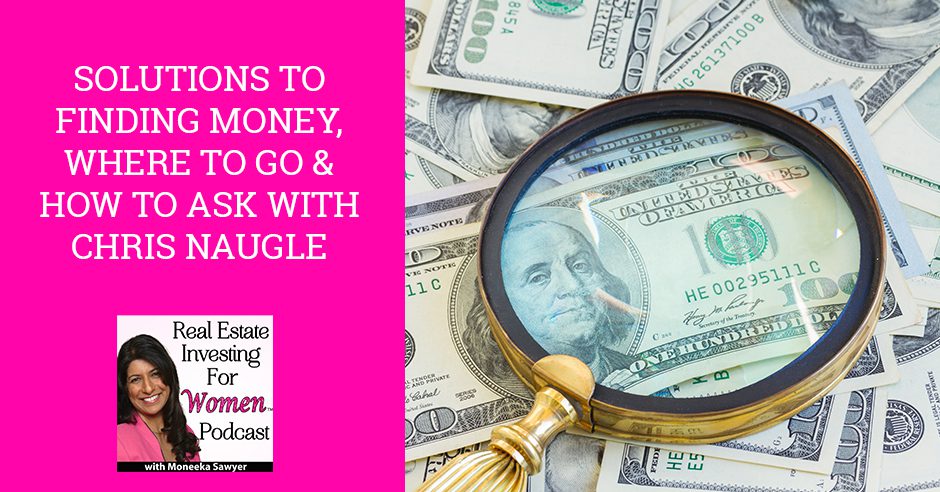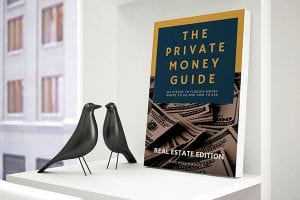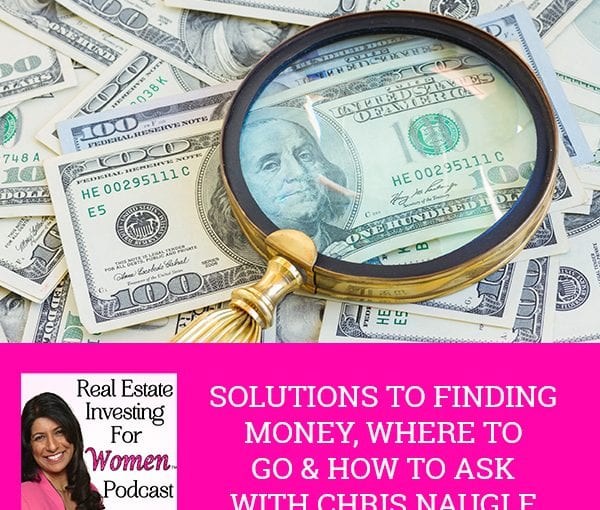Investors Of The Future: Why Women Have The Edge With Michelle Taylor

Women are the real estate investors of the future. Moneeka Sawyer welcomes Michelle Taylor, the City General Manager at Sundae. Women are the future because they bring a new aspect to the business. Whereas men tend to be rigid in following standards, we are more creative. When female investors see a property, they can consider three different options to add value. We also tend to play the longer real estate game by passing on the legacy. Teaching others how we succeeded means more to us than quick selling. If you want to know more about a woman’s edge in the real estate business, tune in!
—
Watch the episode here
Listen to the podcast here
Investors Of The Future: Why Women Have The Edge With Michelle Taylor
It is so interesting that March 8th is Woman’s Day because it is also the birthday of the most powerful woman that I know, which is my mom. I feel like it is not ironic. It is not a mistake that my mom happened to be born on that day. It is such a special day for me on so many levels and all of you ladies because it is Woman’s Day. It is a day where we celebrate the power of the woman, and that is you. Sometimes, we do not feel very powerful. We feel like the world is so male-dominated, especially in this industry. We do not feel as powerful as we are.
This episode is a special honor to you ladies. I am talking to a company focused on helping women be successful in the real estate market and investing. One of the things I hear a lot from you, ladies, is, “How do I find my first deal? How do I get started? How do I know if I know enough? How do I get money? How do I get my first deal?”
We have covered the other topics quite a lot. The deal thing seems overwhelming, “Where can I get my deals? Where can I go to invest? How can we make this system a little bit simpler?” I got a phone call from a woman named Betty Sheu at a company called Sundae. She is like, “We would like to be on your show. We are doing a Woman’s Day campaign. This is what we do.”
What they do is they help to vet properties that are good for investors. I nearly jumped out of my chair. I was like, “This is what my ladies need. We have not had this on the show yet.” Here you go, a present. We are talking about how to get properties and make it simple. We are talking to a company called Sundae, but we are not talking to a company. We are talking to a person from Sundae. Her name is Michelle Taylor.
Let me introduce Michelle a little. This is what she says about herself. I love her little story. She says, “I grew up with parents owning rental property, and as they told me, it is how they paid for college tuition on their humble salaries. It is also one of the reasons I am passionate about exponential opportunities in real estate, particularly for women and people of color looking to bridge the economic gaps. Professionally speaking, I am a licensed agent and City General Manager at Sundae, where I get to marry my fascination with startups and my love for solving problems all while getting to do good work.”
The platform that we are talking about is called Sundae.com. Go check it out. “I am also a wife, mother of five, and budding buy and hold investor of a few short-term rentals in Sacramento.” This was so sweet. Michelle was like, “Welcome to Sacramento.” You ladies know I am moving. I am so excited to be making a connection up there so we can talk real estate.
—
Michelle, welcome to the show.
I am glad to be here. I am super excited about being one of the first people you might be meeting in Sacramento and around this topic. I feel very lucky. I have a lot of reasons to be excited about this episode, and this topic has me ecstatic.
You are a powerful woman, a mother of five, and a real estate investor. That is exactly the person that we want to be talking about or talking to on Woman’s Day. Michelle, why don’t you jump in and tell us about your story? The two-minute high-level version.
Women bring a new aspect to the business.
I did grow up with parents who own real estate. I did not quite understand why they wanted to own another house that we would not live in and how come we never lived in the house? I am about to go to college, and I remember thinking, “How are my parents going to pay for this?” My mom said, “You know that house over there that you always complain about when we have to go and clean up or do the things that require having a buy and hold?” She would say, “That is my workhorse. I am going to get some money out of that and I am going to pay for your college tuition so you are not worrying about those things as a student.” I know that my parents’ dream was to send their kids to school and they were able to do that through real estate.
How did you get started?
I worked in a lot of startups. I have a fascination with startups because you are always solving problems. I work for one of the budding major public companies now. When they were a startup, I was there, and I thought, “I am working with all these real estate agents. I understand what they are trying to solve. I want to get into real estate.” From there, I worked retail for a number of years. I realized that although there are plenty of shows on HGTV around that, there is so much more to the work and there are so many other layers of real estate.
There are even so many more opportunities than just living in the home that you are enjoying. I start to get exposed to more of that work as you start to meet clients, and they carry you along their journey, and then you want to take your own. That is how real estate got me between my parents and the creative problem-solving.
Were you an agent first and then you became an investor?
I had a chance to see other investors buy homes that I thought, “No one is going to want to take on this major project.” You realize there is this whole other sector of folks who can’t get enough of those properties because they see an opportunity to improve the home, bring more value to the neighborhood, and run their business from the work that they have done. It has been fun to watch. I finally took the leap myself and had a buy-and-hold property.
All of you agents out there, I know that you are reading this because you want to become investors. I love when I see another agent that has done that. You guys have access to properties in a way that the rest of us do not. Another point I wanted to make here quickly is that you do not need to be an agent or an investor.
I do not carry my license because I found that in California, it caused a lot of disclosure problems when I carried my license and wanted to invest, so I gave up my license. There are lots of different ways to do this. I know a lot of investors, and the very first thing they say is, “I am going to go get my license.” That is not necessary. Would you agree with me on that?
I would agree. The majority of investors that I work with have the same philosophy. It allows them to focus on their business and not have to worry about the licensing component of traditional real estate with the license.

Investors Of The Future: Startups are fascinating because they always solve problems.
It is because you have got to renew that license and hang that license somewhere. Usually, you have to pay that broker. There are other obligations around licensing. I did not want to deal with that either. Sundae is focusing now on getting women investors and you have got 9,000 investors. Is it subscribed to the platform?
It is not a subscription, but they are able to come to the platform and vet properties online. They are able to see properties and access home inspections, which saves them a lot of time. They are able to see reports so they can do virtual walkthroughs. Our value add is for them to be able to compete on a property because we know how hard it is to come by inventory these days.
You will see a lot of property without necessarily having to step foot in it, which will save you some time and also provide discovery documents so that you are able to see, “How did it inspect? What is the condition of the title? What are some things that we may have to navigate to be able to resell this property?” It is a great time saver and also the insight, lots of content for investors who consume on our website. They are able to also learn about the business as they are growing.
You have got 9,000 people that are on the platform as investors, but only 20% are women. Is that true?
That is correct. We want to see that number grow. I personally think that women are able to bring a new aspect to the business. We want to let all people know that we are out here, especially women who may feel like it is a challenging industry to step foot in. It is an avenue to help bridge some of those gaps. If you want to feel secure about the opportunity that you are going to consider to flip or hold, the more information you know and the quicker you can review that information, the better you are going to be able to compete and win one of your biddings and to also feel confident that you did not necessarily buy completely blind. If you can’t walk through a home, that can be daunting. At least if you have some materials to review, it can make you feel much better about your decision-making.
You bought a property in Sacramento off of the platform. Is that true?
I have not bought it through our platform as an employee. I purchased the home prior to working for Sundae. I have worked with investors who do. I have a female investor who buys lots of buys and holds. She does short-term Airbnbs around the Sacramento region. She has a very particular buy box that she is trying to find. She wants to be near hospitals or colleges.
She has the particular square footage and age that she is looking for. You will see her win bids quite frequently because she is very familiar with our platform. She is able to engage with our content, make a good decision quickly, and then bid aggressively where she feels like there is going to be lots of competition. She enjoys our platform and talks very highly about how much it saved her money and time over 2021.
I believe women have a huge advantage in real estate investing. There are disadvantages, too, but could you talk about your perspective? As female investors, what are the advantages and disadvantages that we bring to the table?
Women tend to be more willing to play the longer real estate game.
What I see among female investors is that they are very creative in their approach where they will see a property and might see three different options, “We could do an ADU or accessory dwelling in this space. We could update part of the kitchen and most of the bathroom or all of it.” They are very creative in adding extra space to get more value-add of the property.
Whereas sometimes our counterparts, when men are approaching a flip, it can be very standardized in their approach, “We are going to flip every component of it. We are going to stick exactly to the previous footprint.” These are some generalizations but I do find that women tend to be much more creative with the use and their approach when remarketing the property. Creativity is our advantage.
I am out in Sacramento every weekend because we are remodeling our new home and I am there with my business partner. We have started to look at other properties. He is a guy and I am a woman, so we balance each other beautifully in the business. It is funny because I drive him crazy with what you are calling creativity. We look at a piece of property, and he is like, “We could build four condos here. I do not know if it is going to pencil out. Lumber is expensive.” I am like, “What if we did this? We could have one facing that way.”
He is like, “We do not know if it is zoned for that.” I am like, “We can find out about that.” I am talking to my contractors about remodeling my house. I am like, “We could do this. What do you think? What is the best option?” He is like, “We normally do this.” I am like, “Yes, but we could.” It is interesting. I come into the conversation, and I drive these guys crazy.
Once they settle down, they are like, “That is a great idea. Yes, we can do this.” This is one of the things, ladies, and I do not know if you have found this too. You come into the conversation, and you have to give them a few minutes to reground and rethink because they do not move. We can move in so many different directions so fast, and the guys are like, “Slow down.” They need a day to digest.
I also think that women tend to be more willing to play the long game in real estate. More often, when you are talking to male investors, it is about, “How quickly can we sell this?” The profit margin for each one of those deals within the investment community is majority flips. Most of the women I work with all have a decent size of portfolio of buy and hold. In fact, they will say, “I am never selling these.” That is where they see themselves.
I see a lot more of that too. My business partner says it is more like a savings bond. It is for the future, pay for education or retirement, and we want to hold them to pay for those things. I wonder how much of that is because we do not want to have our hands in the mud on this. You do not want to be getting our hands dirty. We do not want to be doing all the flipping and that stuff because we have to hire contractors for the most part. That is not always true. Again, we are generalizing. Women are like, “I am happy to make this the long game because we do not want our fingers in the mud.” Would you say that that is true?
I would say that is also things I have observed in the businesses. It is also, “I want to hold on to this as long as I can. I am thinking more of the legacy or what to pass on to my other family.” Whereas I see men are, “Let’s take this down, demo this, and get this back on the market and move on to the next one.” It is a much more hands-on, hands-off approach.
If you could look back to where you started, what would you advise yourself based on what you know now?

Investors Of The Future: Female investors are more creative because they can consider three different options when they see a property.
I would have started sooner and where I could. In my mind, I had to have a certain amount of income in the bank already to do certain things, or I had to be a certain age. If I had started in real estate younger, that would be great, even if it would have been just a condo. Now that I look back and see that those prices have changed so much within a ten-year span, you think, “I could have bought twice as many units if I would have been willing to take the leap. I could have been less fearful and more creative in my approach.”
That is one of those things that I see with women all the time. We want to be ready. It is like having a baby. Maybe you wanted a baby your entire life, but you are never quite ready. There is never a good time. You know this better than anybody. When you want something, you got to do it. That is the same thing with real estate. We need to birth that business because if we don’t, it does not have an opportunity to grow as fast for us in our lives. I always want women to start sooner than they think they can.
It will teach you something. Sometimes, we imagine that maybe we will have a property for a long time. You realize, “It is time for me to let this one go because a better opportunity is coming.” I feel that real estate, like children, will teach you something about yourself, too, like, “Why am I so attached to this property? Why did I think that this was a great deal?” There are all sorts of things and you learn something both about the business and yourself with each property as well.
This is not real estate or any business. You do find out what you are made of when you are investing.
Even your threshold for pain.
As you learn those things, you are able to do the business better later. It improves your life too because you realize how powerful you are. You will find with that threshold for pain is it is significantly higher than you thought it was. I would say, “There are tears in real estate.” You find where those tears start and how much you can take. This is not supposed to be scary. You grow, and you realize your power and your capacity. The reality is almost anything that comes up is not going to take you down. You take it down.
There are tears of joy, for sure. It does something to you when you are able to visualize getting a property for particular use in terms of an investment and then manifesting that where it is like, “This is an Airbnb and rental property. This did sell.” I thought it, I imagined it, and I executed it. I can do it again. When you get good, you can teach other people how to do it too. That is a powerful thing anytime you can pass it off on.
We do have an EXTRA coming. We are going to be talking about what the biggest red flags are that Michelle looks for when considering a deal. She is going to talk about not just what she looks for but what she is seeing a lot of her ladies on the platform and what they are looking for. She is going to be showing that with us in EXTRA.
Also, as our free gift to you, Michelle and I are going to be holding a webinar. She is bringing in someone else. Her name is Jennifer Welborn. We three ladies are going to come together for a Woman’s Day Special to talk about overcoming roadblocks as women property investors. We are going to be doing a webinar on Thursday, March 17, 2022, from 1:00 PM to 2:30 PM Pacific Time. Go to BlissfulInvestor.com/WomansDay. Did you want to talk about what you guys are going to be covering in that webinar?
Starting in real estate when you’re younger would be great.
We are interviewing you and finding out more about what it is that women should be looking out for in a real estate deal.
This is going to be a different webinar. That is why Michelle is like, “I don’t know.”
I know that we have a lot that we are covering. When you are speaking for your company, sometimes those things are also developing.
What we have set up is we wanted to have three powerful women that are in real estate. Two of them are coming from Sundae. We are going to talk about what the roadblocks are that we have experienced, what we are seeing other women investors experience, and how we can overcome those things. It is going to be an open conversation. I am going to be interviewing them and they want to interview me. It is going to be a fun open conversation. The lovely thing about it being a webinar is it is live.
Those of you ladies, you can ask questions because you have experienced roadblocks. You are going to have three powerful women that you can personally ask questions of. It is going to be a fun open discussion. It focuses on the power of us, women as investors, and how to amplify that powerfulness rather than getting stuck in this isn’t working or the things that make us feel we can’t do it. Does that sound right?
Absolutely. The roadblocks that we all have to encounter and then either have solutions for or decide that we have to go in a different route.
Go check out Sundae at Sundae.com. Are you ready for our three rapid-fire questions?
Yes.
Tell us one super tip on getting started investing in real estate.
Get a mentor, learn from someone who you like, their work, they are able to prove success, and you can learn from them if they are willing to share their experiences.

Investors Of The Future: When you get good, teach other people how to do the same.
What is one strategy for being successful as a real estate investor?
Consistency. Looking at your market at all times of the year because there is some seasonality to it and consistently taking a look at deals, not always looking to purchase, but to know your market. The only way to know your market is to consistently review the deals that are successful.
One of the things that I appreciate about that is that even if you are not looking to purchase if you are looking around, you get to know areas, zoning, and parameters so that when you find something that you want to make an offer on, you are ready to go. You have got all of this wealth of information on that market. You can confidently make offers. Nobody has said it that way. Thank you for that, Michelle. I love that. What would you say is one daily practice that contributes to your personal success?
I get up pretty early every morning and I make at least an hour of that morning to be about centering myself, usually through some form of fitness. We spend a lot of time in different mental buckets of thought. As an investor, you have to jump through. Sometimes, you are thinking financially, marketing, and also the economics of what is the next year going to look like.
You are able to do that fluidly. You also have to be physically disciplined so that you can do the work when it is not always your wheelhouse, but it is part of the business. You can flow freely in the areas that are your passionate parts of it and tap into your creativity. Having that morning hour helps those days be a little more inflow than out of flow.
I also believe that exercise gets my mind more stabilized. It gets me more into my body, so I am able to utilize all my resources. I do feel like exercising makes me significantly more creative.
That is exactly why I do it because there are some mornings where I am like, “I am so tired. I can’t believe that I chose to get on this treadmill.” As soon as it is over, I am like, “That is why.” I feel like my mind is snapping into clarity.
Michelle, thank you so much for all you have offered on this portion of the show. This has been super fun.
I wish everyone reading this and considering going into investing to come and check out properties first on Sundae. There is a great place to get started. From there, you would be able to have some documents to feel much more confident about the deals you would be stepping into.
The only way to know your market is to review the successful deals.
Remember, we do have a webinar. You are going to get more of Michelle and more on this topic about how to overcome roadblocks and become a successful investor. It is an open panel. We will be chatting with each other. We will love your questions. Remember to join us on Thursday, March 17th, 2022, from 1:00 PM – 2:30 Pacific Time. Go to BlissfulInvestor.com/WomansDay. I hope to see you there.
Ladies, stay tuned for EXTRA. We are going to be talking about what are the biggest red flags Michelle and her clients look for when considering a deal. If you are subscribed to EXTRA, please stay tuned. If you are not but would like to be, go to real RealEstateInvestingForWomenEXTRA.com and you can sign up for free for the first seven days.
After that, it is a subscription, but it is a very low cost. It is a huge value for what you pay. For those of you that are leaving Michelle and I now, thank you so much for joining us. Be the most amazing, beautiful, wonderful self that you are. I am so delighted to have you on this journey with me. I do look forward to seeing you next time. Remember, goals without action are just dreams. Get out there, take action and create the life your heart deeply desires.
Important Links
About Michelle Taylor

Real estate is artistic capital. I help people enjoy it.
______________________________________To listen to the EXTRA portion of this show go to RealEstateInvestingForWomenExtra.com
To see this program in video:
Search on Roku for Real Estate Investing 4 Women or go to this link: https://blissfulinvestor.com/biroku
On YouTube go to Real Estate Investing for Women
Moneeka Sawyer is often described as one of the most blissful people you will ever meet. She has been investing in Real Estate for over 20 years, so has been through all the different cycles of the market. Still, she has turned $10,000 into over $5,000,000, working only 5-10 hours per MONTH with very little stress.
While building her multi-million dollar business, she has traveled to over 55 countries, dances every single day, supports causes that are important to her, and spends lots of time with her husband of over 20 years.
She is the international best-selling author of the multiple award-winning books “Choose Bliss: The Power and Practice of Joy and Contentment” and “Real Estate Investing for Women: Expert Conversations to Increase Wealth and Happiness the Blissful Way.”
Moneeka has been featured on stages including Carnegie Hall and Nasdaq, radio, podcasts such as Achieve Your Goals with Hal Elrod, and TV stations including ABC, CBS, FOX, and the CW, impacting over 150 million people.
Solutions To Finding Money, Where To Go & How To Ask with Chris Naugle

Opportunities don’t just show up in your doorstep unless you make a way for it to do so. Here to teach strategies and solutions on finding money for your real estate investments is Chris Naugle, the Founder of The Money School. He explains why you need to reimagine the way you look at and understand how money works in real estate. Chris emphasizes the importance of setting up a strategy for achieving your goals before entering the industry as well as having a multi exit strategy in place for security. He goes into the details of how you can secure money by not asking for it, instead by solving people’s problems.
—
Listen to the podcast here
Solutions To Finding Money, Where To Go & How To Ask with Chris Naugle
I’m excited to welcome to our show, Chris Naugle. Chris is an entrepreneur with high-level experience as a financial advisor, managing over $30 million in assets. Using his expert knowledge and finance, he has successfully bought, renovated and sold hundreds of properties with his work being featured on HGTV. Chris, how are you? Welcome to the show.
I’m doing great. I’m excited to be here.
I’m excited too. I can’t wait to hear about all of this private money stuff. It’s going to be fun. Why don’t you start by telling us your story?
The story starts when I was a kid, I grew up in a lower-middle-class family. My dad was an alcoholic. My mom and dad got divorced and mom had to raise me. It was that story you hear all the time, but that story is not the norm for everybody. I realize that, but that’s how I grew up. I was that kid who always wanted more. I’ll never forget I always was willing to go out there and do what everybody else was unwilling to do. By 2004, that landed me to be a pro snowboarder. I don’t know if any of your readers have ever been to Buffalo, but most people avoid this place like the plague, but it’s not exactly the iconic place where you breed pro snowboarders. We have hills, not mountains. In 2004, I’d accomplished that goal. All I wanted was to be a pro snowboarder. At that point, I also had co-founded a chain of skateboard and snowboard shops called Phatman Boardshop.
I started them when I was seventeen years old. I started it as a clothing line in mom’s basement, which is a whole other part of the story. My mom, who never had anything, as crazy as this sounds, she put her house up on the line. It was the only asset she had in the world. She put her house on the lines for a crazy punk seventeen-year-old skateboard-snowboard kid to chase his dream. That’s how Phatman Boardshop was founded. By 2004, even though I had become a pro snowboarder, even though I had this chain of four skateboard and snowboard shops. Everything in my life seemed like a fairytale, but I still wanted more. I’ll never forget, at that point in time, I was infatuated with the movie Wall Street. Do you remember the original Michael Douglas Wall Street movie? I remember that movie and I’ll never forget it. When I saw that movie, the first thing I thought is, “I want that.” The only thing I could think of is to get that I need to be a stockbroker.
I need to be a financial advisor, which is where that all began because, in 2004, I started diving in and studying and doing everything it took. I became a financial advisor right around that time. As an advisor, I excelled fast. I got all my licenses, got every single certification you could possibly get. If there was a cert, I went out there and I got it. It was because of that, I rose to be one of the top advisors in the firm I was at. That continued on. I was an advisor for a long time. By 2006, I’d been seeing some of these flip shows on TV. We’d be at the shop working and we’d have HGTV on or A&E. We’d see these flips. In a TV show, you see a flip getting done in 22 minutes. It’s entertaining. I said, “I can do that.” I had some money from being an advisor and I decided to start flipping houses.
My first one was in 2006. It was a complete disaster. It’s the only word I can call it, but I got my feet wet. I did that all the way up until 2008. By 2008, this is the pinnacle. I was crushing it. I was literally crushing it as an advisor. I had flipped a couple of houses. I was a pro snowboarder at the peak of my career. By that point in time, I got my retail stores. Everything was humming along with that and I then got my next big idea. This is one of those grandiose ideas because I’ve always been a big thinker. That idea was I was sick of paying rent to my landlord. He kept raising my rent.
Two buildings down, this dilapidated paint store came up for sale. I saw the sign and I’m like, “That could be my new home for my stores.” What I would do is I would convert it to a three-unit strip mall. I’d have the tenants pay for my rent because why should I pay rent when my tenants would pay it for me? That was my big idea. I dove in. I borrowed money from a hard money lender. I call them knuckles in my stories. This was in 2008. It’s perfect timing. I didn’t even see this coming as an advisor, which is a whole other story.

Finding Money Solutions: You don’t need a ton of new things. You only need one thing. One thing that will catapult you faster, smarter and more efficiently.
In 2008, the small thing called the Great Recession hit me like a Mack Truck. It brought me to my knees. It got so bad during that period of time that I was one payment away from being completely bankrupt. I literally didn’t know how I was going to make it to the next day. What happened is my girlfriend, she’s now my wife, Lorissa. She moved into my house and I had to come home one night. This is when everything was crashing all around me. When you think your life is going one way, all of a sudden, these things happen and then you’re going the complete opposite direction.
I came home and I looked Lorissa in the eye and I said, “Sweetie, I need your help. I need your help paying the mortgage and the utilities. Honey, you’re not going to like this. I have to rent that bedroom out to this guy named Pete. I know you don’t know him, but I can’t make it. This is what I need.” At this point, I threw it out there. I had no one else to ask. I thought, “This is a 50/50 shot,” because she could say, “I’m going to let myself out and good luck, buddy.” She liked me because she ended up marrying me and making it through that period of time with me. Those are exactly what we did. We rented out two bedrooms in my little house that I had back then. That’s how I made it through.
By 2009, Warren Buffett, who was my all-time hero, says three things. I repeat these all the time, “Buy low, sell high and don’t lose money.” In 2009, I understood one of those three things. I understood buy low. I also understood real estate was cheap because that’s what the whole recession was about. That’s what brought me to my knees. I was right in the middle of it. If everything’s low, let’s start buying. That’s what I did. From 2009 to 2014, that’s all I did. I bought dilapidated apartments one at a time. I borrowed money personally for each one of these. I wasn’t using commercial loans. I didn’t know how money works. I thought I knew how money worked because I was an advisor and I knew exactly what I was taught in all the teachings, classes and certifications. I learned exactly what everybody else knows about money, the traditional way of thinking about money.
By 2014, I got up to have 36 units. I was back to making good money in the advisory firm because the markets have rebounded. By that point, I had sold off my stores in 2010. Phatman was sold and I’ve even sold off my strip mall. Right at this point in time, I realized I was in trouble all over again. You would think everything was going well but what I didn’t realize is when you borrow money in your personal name, the banks look at you and they say you don’t fit in their little square box eventually. I got up to 36 units, which were six properties. I brought one more to the bank and the bank said, “You don’t qualify because you don’t fit in a little box called the debt to income ratio.”
I said, “I can’t buy this new six-unit, but I’ve got all my other ones.” They said, “All those lines of credits that we gave you, we have to freeze all those, Mr. Naugle. You can’t use those anymore.” I had a bunch of properties unfinished. At that point, I’d gone from having money back in 2008. I was crushing it to almost losing it all. I had made it back and here I was again, now I was losing it all again. It was getting so bad that I was living paycheck to paycheck trying to make ends meet with all these properties and all my obligations.
I and Lorissa had bought our dream house and that was a big expenditure. It got so bad again that we had to sell off all 36 units, which who cares, they’re investment properties. I had to sell that dream house. That’s when I started thinking about quitting. I was like Rocky Balboa with the towel ready to throw it in. I got in the mail a postcard and this is where everything started changing. It changed because of what I call a magic postcard. This postcard was nothing special. You’ve gotten them. I bet you your readers have gotten them. It said, “Come to this three-day seminar to learn how to flip houses.” When I tell people that, they’re always like, “You’re crazy. What is wrong with you?”
What was wrong with me is that at this point I was humbled by my failures that I had nothing to lose. By going to the seminar, I got a free iPod Shuffle. That’s exactly why I went. I didn’t have anything to lose. I had an iPod Shuffle to gain. Off I went. On day one, there was nothing special but by day two, everything changed. It wasn’t because I learned a whole bunch of new stuff. It was because I learned one new thing. That one new thing was that breakthrough for me. It’s the same with many of your readers and the people you’re around, we don’t need a ton of new things. We need one thing. One thing that will catapult us faster, smarter and more efficiently. That one new thing for me was I learned that with the successful real estate investors and there were two of them. Mike and Greg were their names. What they were doing and how they were using money in real estate was the complete opposite of everything I’d ever been taught in my entire life about money and about how to use money in real estate.
At that point, I realized that they don’t teach this stuff. This is the knowledge you need to seek out and you need to dive in and chase because it’s never going to come to you. No one’s ever going to teach it to you because they’ve got nothing to gain for teaching you. When I learned that, I started questioning everything. Everything I’d ever learned started being questioned. Do you know sometimes in life, when you got hard times, you blame everything else? I blamed the lack of money. I blamed the economy. I blamed everything I could possibly blame. I was in the blame game. At that point, I realized it wasn’t about the money. It wasn’t about the economy. It was about the misinformation that I’ve been given my whole life because these two guys, what they were doing was working and they were killing it and it was everything that I’d never been taught.
That’s the moment when I decided to get off what I call the financial hamster wheel and that’s when I learned how all this work. How I learned all this is I swiped my credit card for $27,000. I told you where I was in 2014. I was broke. I was barely making it. Here I did swipe my credit card. My wife killed me when I came home and told her, “I bought us this thing. Do you know that thing that you didn’t want to go to? I swiped my credit card for $27,000 because what we need is what these guys can teach us.” That’s what changed it all. When I swiped it, I wanted to throw up in my mouth. I did. One of those ones that you got to re-swallow. It was so overwhelming that I was broke and here I was going $27,000 in debt without a hope in hell in ever paying that money back. That’s where the TV show comes in.
Buy low, sell high and don't lose money. Share on XI want to point out some things, Chris. Your story is amazing and it highlights some of these things that people go through or are afraid of going through. What is the biggest reason people don’t get started in real estate? It’s fear. Their fear that they don’t know enough, that they’re going to fail, that they’re going to go bankrupt, that they’re going to end up homeless. There are a lot of things that go on through our mind that are not necessarily rational but are definitely there. What’s interesting is when someone comes on this show and they lived the nightmare. You were one paycheck away or one payment away from being homeless. You had to sell your dream home. You were crushing it and then you lost everything and then you’re crushing it and then you lost everything. This is the thing that I want the ladies to know. Success is there for the taking, but failure is a part of success. We learn through that failure. Failure is scary. Chris can tell you. I’m looking at his face and he gets choked up when he’s talking about this. It was hard. It sucked. He had to talk to the woman he loved and humble up and ask for help. He had to sell their dream home.
That almost cost us our relationship.
Things happen that sometimes we’re afraid, what if they leave? I know I’ve had this with David. What if he leaves me? I’ve made this huge mistake. I said this many times and I want to say this again. Don’t give up on yourself. Real estate is the single most consistent, proven way of building wealth in the United States. It’s safe in general as long as you do it the right way. We know real estate works, but if you get in it and you make some bad decisions, it’s not going to kill you. It will make you stronger. In the end, if you stick with it and you don’t give up on yourself, you will see success. Even if we see failure, even if we see economic crashes, no matter what we’re seeing out there, what’s going on in our own mind is going to determine how successful we are. Fortunately, we have control over our own minds. That’s an important thing. Chris, I love your story of this roller coaster ride because this is the thing that many women fear.
I would never advise people to do that. It’s painful. Jump in feet first without any mentor, without any knowledge, don’t do that. If you do your research and get started, you get a mentor who can help you sidestep a lot of those mistakes and you can see success. I wanted to point that out, Chris, because as people are reading this, we’re all emotionally involved. “I can’t believe he went through that.” I wanted to point out that this is what we fear. This is our worst case. Now, Chris is here talking about his successes. Thank you for that, Chris.
You’re right with everything you said. You could even take and go back into my story and pull up the rest of the fear. The fear of being a pro snowboarder and what that was like, showing up places, and having to hit a jump that you thought was bigger than anything you’ve ever hit. That fear that engulfs you and that was part of life as a pro snowboarder. The fear of when my mom put her house on the line. Even though that was an exciting time, as a seventeen-year-old turning eighteen, my mom’s house was on my shoulders. If I failed, I’d lost my mom’s house. My whole life has been facing fear. Don’t think for a second it’s ever been easy. That whole roller coaster ride you heard there, there are many things in there where I literally want to quit.
I wanted to quit every time, but the only way to truly fail is to quit. I wasn’t willing to accept that even when things got bad in ‘14. Me and Lorissa, she was my fiancée then. We split when that house got sold. Things got hard and I didn’t know if that would ever come back. I had to take a month and go to Thailand to clear this head because I didn’t know how to get through to the next day. It all came back together because I never gave up. She never gave up on me either. When we came back and we went to this training that we spent all this money for.
At first, she was mad at me. She couldn’t believe I did what I did, but then when she saw it and she met Greg and Mike and she met all the other mentors that we were being coached by, she realized that this is what we needed. She realized that this is the stuff we were never, ever shown. I’m going to get right into the show because many people want to know how does one go about getting an HGTV show? How do you get that? That’s the likeliness of getting struck by lightning. A lot of people are misinformed on how you get a show. A lot of people think that they see you on Instagram or Facebook and they call you up and say, “We’d love to have you on HGTV.” No. Here’s how it started for us.
We were in a convention at this real estate training with our mentors and Tarek and Christina got up on the stage. They did a little dog and pony talk and it was great. My wife and I looked at each other and do you know what I said to her? I said, “Sweetie, if we’re ever going to get on that stage, we’ve got to have our own show.” Instead of going out and trying to find somebody to produce the show, I went back and I hired my friend, Kyle. He started going to one of the flips we were doing. He started filming us. I got this crazy idea as a snowboarder that we should do a show that mimics Jackass and Flip or Flop and bring it together. That’s where the first rendition of the show came up, which was Flip Out. How it started is we started filming and we were having so much fun.

Finding Money Solutions: If you’re getting into real estate, you should have a system and a strategy.
It brought me and Lorissa closer. We brought one of my ex-pro snowboarders in, his name was Blair. That whole experience, that bonding experience of working toward this pie in the sky thing, which was scary. It’s like, “This may never happen,” but the thought that if you work toward it and you keep that idea strong in your mind, it can happen. It did happen. We sent that video out to all the networks and we got turned down by every one of them the first time. The producer that took us on dropped us because they couldn’t get it placed. We should have quit there. We’re like, “No, we got something.” We went to the next producer.
That producer took my little crazy pie in the sky idea and he made it into their little box. He said, “This is what HGTV is looking for. You guys are this close. We need to squish it together.” We filmed it a whole other flip. That flip is the one that got us on HGTV. It didn’t happen overnight. You’ve got to understand, in 2014 is when we started that dream of getting a show on HGTV. We didn’t air until 2018. Think about that. Sometimes your dreams are not going to happen overnight. There is no easy button in life. It is a marathon. If you want something so bad that you can taste it and so bad that you will never stop, you’ll get it. As Napoleon Hill says, “If you dream it and you believe it, you can achieve it.” That’s exactly what got us the show. Never giving up.
Our show aired in ‘18, HGTVs Risky Builders. You can look it up. It was a wild and exciting time, but that same thing, when the show aired and we aired six times, we didn’t move on to the next season. You think you got it. Your ratings are there. You’re the number two show out of green light and you think you got it and all of a sudden, one thing happens. That one thing that happened for us was discovered about HGTV when our show was airing and they decided to freeze all my shows. That door that we thought was going to open that was going to pave the way for the rest of our life slammed in our face.
Another thing that Chris said that I want to highlight. His dream took four years. We are conditioned to have a short-term vision and immediate gratification mentality is common now. There are many people out there promising us, “You can make $1 million in two years. You have to work ten hours a week for the next eighteen months.” The truth is that I’m not going to say bad things about anybody that’s making promises because I don’t know. What I do know is an assured way of success is to have a long-term vision, especially in real estate. Chris did flips. That’s more of a short-term thing. I have done a couple of flips. It’s not my favorite thing to do because the pressure is high, but you want to have a long-term vision. First of all, if you’re flipping, have deep pockets enough that you can recover from any mistakes. With flipping, you have to be right on target.
We are at 257 flips to date and it would be 258 soon. I can assure you, you better hope you’ve got a good plan for how cashflow is happening.
In the beginning, mistakes happen and that costs money and time. You need to make sure that you’ve got the backing to do that if you want to do flips. Regardless of whatever you’re doing, whether it’s flipping or wholesaling or buy and hold, which is what I do, have a long-term vision. Real estate is not a get rich quick scam or idea. It is a long-term business. Even though his TV show, we’re talking about that and it took four years or whatever, understand that real estate is that way too. You want to stick with the dream long-term because that’s how it’s going to pay off.
The other thing too that you said in there that I want to clarify that it’s vitally important is if you’re getting into real estate, I don’t care if you’re going to wholesale. I don’t care if you’re going to flip. I don’t care if you’re going to do BRRRRs and buy and holds, you should have a system and a strategy. My system and strategy are simple. Each and every single property I have goes through, I call it four, but we’ll focus on a three-step strategy. Number one, every deal we get, first, we try to assign that deal because the quick dollar is always the best dollar. Number two, if we can assign it, we don’t freak out. We don’t worry because you know what we figured out, we figured out how money works.
That’s what I’ve written a book about. It’s what I teach and talk about, money and how money works. We take the deal down. What we do is we look at, can we wholesale this deal? Can we do a quick sale without doing much work or any work at all? If we can’t, if we flip the deal, that’s strategy number 2.5, as I like to call it, because if we can’t pull it out, then we’ll look at flipping it. If we flip or we’re looking at that strategy, we have to be able to make 20% profit. If we’re not going to make a 20% profit, it moves on to step number three or strategy three, which is a BRRRR. What we’re going to do is renovate it like a flip. We’re going to basically get it ready.
We’re going to rent it. We’re going to take it to the bank and refinance it. We’re going to keep it as a long-term rental because once you own the asset and you control the asset, it’s now providing cashflow. It’s appreciating. What we’ve even been doing is taking a lot of our rentals, packaging them together in nice rental portfolios and selling them off to areas like California, Toronto, New York City, where they can’t touch rate of return like what we’re getting here. That’s what we’ve been doing. Because we have that system, we never have to worry about cashflow. There’s always a secondary strategy. That goes right into what you were saying. There’s not one or the other that’s better, just make sure you have multiple exit strategies in your strategy.
Success is there for the taking, but failure is a part of success. Share on XThank you for saying that, Chris. That is my big thing on how I have avoided my own disasters in my life in real estate is always having several exit strategies. Every business partner I go into business with, they have to understand that I’m not married to one particular exit strategy. I have my preference, but if that one doesn’t work, we are going to number two. In other words, if we’re trying to sell a flip or a construction project and the market has plummeted and we can’t sell it, I’m not going to chase the market down. I’m not going to do that. We are going to rent it. Understanding that you have many options with exiting a project is important. You don’t want to get married to a particular idea and you don’t want to get so bullheaded about it that you will make mistakes like chasing the market down. Instead of chasing the market down, chase rents up. You can do the opposite and succeed. Chris, nobody else talks about the multiple exit strategies. Thank you so much for that.
We did 257 flips and you might look at that and be like, “Wow.” We made a lot of mistakes in the early years. All we did was flip. I can tell you, there were times where I couldn’t even buy groceries because I had so much money out there, I didn’t have cashflow. We started getting smart. What we started doing is getting a rental and that rental cashflow, we’d roll it in. We created a spreadsheet. We had X amount of cashflow coming in and we wanted that cashflow to support the carry cost on the flips. It didn’t happen overnight, but we started figuring out, “If we can build a rental portfolio that cashflows, we can use that cashflow to determine how many flips we can do at one time because the cashflow carries the cost of the flip business.”
You make the big profits on the flips, but sometimes you’ve got to wait for that. We started saying, “If the house doesn’t sell and we don’t make 20%, no big deal. Let’s rent it and move it into the rental portfolio. If it didn’t sell now, it might sell next year or maybe down the line, we’ll keep cashflowing. We figured this out through mistakes. All these ladies that are trying to get into this business, if you take this knowledge and you apply this in your business, you will not go through these roller coasters that I had to. You won’t have to look fear in the face like I had too many times and say, “How am I going to get to the next thing?” You’ve learned from someone else’s mistakes. Although failure is a necessary part of success, you can minimize the number of failures by learning from other people’s failures and then applying what not to do in your practice.
It is why a mentor is so important. Could you tell us a little bit about how you started financing things? I know you started using private money rather than the banks. Could you tell us a little bit more about that?
It all came when I learned that the people that were crushing it in the business, I always thought it was because they had millions of dollars of their own money. I learned that they didn’t. They mimicked what the banks did. They used other people’s money. What the biggest thing I started doing, and I was good at this because I was an advisor, is I started going out and finding all these people that I thought had money. Whether it was in an IRA, hidden equity in their home or money that they had set aside in investments that maybe they weren’t comfortable with the risks. I found all of these different sources of money and the biggest source of money I found, to be honest, and this is going to blow you away, permanent life insurance. Do you know how much money is sitting in permanent whole life and universal life policies? These people don’t even know that they can access their cash value. I started going to these people and I started solving their problems. This is a massive takeaway.
One thing I got super good at is never asking for money. I never went to somebody and asked them for money. I went to somebody that I knew had money. I said I’ve learned what their problem was. Sometimes their problem was they didn’t like making their car payment. What I would do is teach them and I would say to them, “What if I could show you how to have your house pay for your car?” You see their problems, their car payment. The thing I know is they’ve got equity in their house. Instead of their house being a liability, I taught them how to turn their liabilities into assets by taking and using that hidden equity that was sitting in their house. That interest that I paid them on a monthly basis, the mailbox money, that paid for their car payment. I started learning that people’s problems weren’t wanting to become a multimillionaire.
Their problem was they wanted to take one more family vacation. Maybe they wanted to take their whole family to Disney World on them and pay for the little thing. To someone, that’s a major problem in their life. To us, do you know how easy it is for a real estate investor to solve that person’s problem? Show them how to take their IRA, their 401(k) money, their hidden equity, either money sitting into the life insurance and how to then take that income from those vehicles that are not doing anything for them in terms of an income. Show how that income will make them have that vacation. The number one thing to raising private money is not asking for money. It’s not knowing a bunch of people with money. It’s going out there and finding the people that you liked, the people that trust you, and teach them how to solve their problems. Their problems are stinking easy to solve.
For you, it was easy because you were a financial advisor. You had access to this information. The layman, for instance, me, I would never have that information.

Finding Money Solutions: Make sure you have multiple exit strategies in your strategy.
You do. How many people do you know that have employer-sponsored retirement plans, 401(k)s, 403 (b)s, 457s? Every person that’s working in a regular W-2 job probably is putting money into a retirement plan. They’ve been taught to do that their whole life. They’ve got this money sitting in their retirement plans, but do you know what their mindset tells them? “I can’t use that money. I would have to pay tax and penalties to take that money out.” That’s what they think. They don’t know that they can take a loan from that 401(k). When they take a loan from that 401(k), you being the borrower or the real estate investor, can pay that loan back for them and put some extra money in their pocket. If their loan costs them 5% and that interest that they’re paying on the loan goes back into their account, but that’s a cost to them. Why don’t you pay them 10%? They’re making a spread of 5% on that money. Everybody’s got one of these things.
A lot of people have old 401(k)s move into IRAs. Show them how to take those IRAs and move them to a self-directed IRA. You don’t even need to be the expert to say, “I know a person that could basically help you do this.” Everybody wants to think that I’m different because I was an advisor. Maybe it was a little easier because I knew how to identify these things, but everybody knows somebody that has money. Most people will tell you that they don’t have any money because they don’t know how money works. If you get a little bit of knowledge on how money works and you learn how to position your opportunity, which is your real estate deal, your opportunity, you can be positioned to solve their problem. All of a sudden, you start figuring out that the people that you don’t think having money are the biggest ones you can help and the biggest ones that can give you money for your deals. It’s a misconception of where the money lies and how people can use that money.
I don’t know if this happens for you, but someone starts talking about something and then something grabs your attention and you don’t hear anything else. This happened to me while you were talking, Chris. I was going to backtrack a little bit. You talked about they’ve got their 401(k). You can take a loan. You get 5% and then you, Chris, are going to pay them 10%. Ladies, the only reason I am focusing on this is to give you an idea of the paradigm shift that Chris can create for you. There’s one example. Based on what he said, there are probably many opportunities based on what you’ve got, but here’s the paradigm shift that happened for me. You take out a loan from your 401(k) at 5%. I don’t know if you caught this, but do you know that 5% is getting paid back to you? You’re paying interest back to yourself. You’re making 5% and he’s giving you 10%. A lot of people would look at this and say, “I’m getting a loan at 5% and I’m getting paid 10%. This is arbitrage. I’m only making 5%.” How much are they making?
It’s more than 5% because you are paying them 10% and the 5% they’re paying back to their 401(k) is their money. They’re paying themselves back with interest. What they’re doing is the same thing the bank does. You are literally mimicking what the bank does every single day because you learned one new thing that you can change. Everything I teach people is only changing one thing in your life. That is it. It’s applying basic banking principles, the simplest things that are on for hundreds of years to your everyday life. It will change your life. It will completely transform your life if you learn that one new thing.
There are many of those new things that we can learn. Once we focus on one and we start to utilize that, we create a plan like you’re talking about. Now, we have a business.
It’s about the home equity line of credit. It doesn’t cost anyone anything to get a home equity line of credit. Most banks will dish things out and they don’t even charge for the appraisal. It costs nothing to use or to get a home equity line of credit if you’re not using that money. You now got this home equity line and that home equity line taps into the equity in your house. People get excited about having equity in their house, but why? What is your equity in your house doing to change your life? Nothing. Do you know what your equity in your house is doing? I want you to visualize this.
Picture that you come home from work and on your couch is your money sitting there and your money is holding the soda from your fridge. The Lay’s potato chips from your cupboard and there are crumbs and everything all around your couch and your money is sitting there watching TV. Kick back. You worked a hard day and your money looks at you and says, “Did you have a hard day at work?” That’s what your money is doing every day. It’s sitting on your couch being lazy while you’re off hustling because you’ve been taught to go out there and work hard, work long, and you’ll get ahead. Your money needs to work hard. The best thing about your money is you can be a slave driver. You can make your money work hard and it will never ask for a break. It will never ask for a vacation. It will never even get mad at you, but you have to teach it and send it to work.
Your money is sitting there being lazy. Teach your money on how to go to work. Remember my mom. I told that example where she put her house on the line. After she did that, we learned something. After I paid off that store’s loan, what we started doing is mom had this line of credit. We started using mom’s line of credit to buy real estate. My mom’s line of credit was 5%. I would pay my mom usually 8% to 10% on the loan. I’d take a loan and I would pay mom back. That amount that I paid my mom above and beyond her payment to her home equity line of credit was enough to pay for a car. That’s where I came up with that whole idea of having your house pay for your car. That’s what people want. People want their car payment paid for by their house. They just don’t know how. The answer is so simple. Every one of you reading this has the answer to their problem. That answer is in the form of a real estate opportunity. Don’t ask for money, solve problems.
I’ve got one million things that I feel like I could add and we’re already out of time. We’re going to have EXTRA after this and we’ll do a deeper dive on some of this stuff. If you’re subscribed to EXTRA, you’re going to get a lot more. If you’re not subscribed to EXTRA, do it because you’re going to want a lot more. We’re going to talk about more of this stuff then. Before we close out this portion of the show, Chris, could you tell people how they can get in touch with you?
If you work toward it and keep that idea strong in your mind, it can happen. Share on XThe best way to get in touch with me is my website. It’s ChrisNaugle.com. They can go on there and that’s the best way. They can also check me out. A lot of people love social media. I am all over Instagram. It’s @TheChrisNaugle and Chris Naugle on Facebook. You can’t not find me. I answer every single direct message individually.
I knew that you wanted to give my readers a free gift, which is the eBook of your bestselling book, The Private Money Guide: Real Estate Edition. He’s going to be giving you that free eBook. Chris also wanted to make another generous offer. Could you talk a little bit about the membership offer you wanted to make to my audience?
I do because we’re talking about money and a lot of times, I can teach people where all the money is and they still don’t want to look for it. What I’ve created is a community of lenders and borrowers. Picture eharmony, the dating site. I’ve created that for lenders and borrowers. It’s a community that you can come into where all the lenders in there communicate with all the borrowers and the borrowers can submit their deals through a standard operating procedure. We do all the work for you. You fill in the blanks and your deal goes on. Literally, you can have all the lenders looking at your deal and they will do that. It’s called The Money School community. What I wanted to do is basically make a special offer and give it to everybody in your community at a very reduced price over what we normally charge. You can test it out. It’s a monthly subscription. You can try it. If it didn’t work, you stopped the subscription, no big deal, but it has literally provided funding for I don’t even know how many at this point. I don’t keep track of all the deals, but that’s what I wanted to do.
The URL is ChrisNaugle.Teachable.com. You’re going to look at the membership. It will show you the regular price, but then when you get an opportunity to put in the coupon code 50OFF and you’ll get $50 off of the monthly membership. It’s month to month. You can try it for one month at this reduced rate and continue at that rate if it seems to be something that is going to work for you. That’s generous and it’s an ongoing gift. It’s not like $50 off the first month. It’s an ongoing monthly gift. That was generous. Thank you, Chris.
You’re welcome.
Are you ready for our three rapid-fire questions?
I’m always ready.
Give us one super tip on getting started investing in real estate.

The Private Money Guide: Real Estate Edition: Solutions To Finding Money. Where To Go & How To Ask
The super tip to getting started is easy. It’s get started and find one person that is doing what you want to do and latch onto them and learn from them. That would be my super tip to getting started. Stop trying to think you need to know everything and take that leaping start.
What is one strategy on being successful in real estate investing?
One strategy on being successful in real estate investing is to come up with a strategy before you get started. Lay out or map out where you want to be and come up with the plan to get there. If you want to have five properties, come up with that plan of how many offers do you have to make versus how many houses you have to get. Write the plan down. Don’t dive in without a plan. Do the plan first.
What would you say is one daily strategy or daily practice that you use that contributes to your personal success?
Every morning, the first thing I do when I wake up is I get down on my knees and I thank God for what I have.
Chris, this has been amazing. Thank you for everything you’ve offered in this portion of the show.
You’re welcome. It’s been an honor.
Thank you for joining, Chris and I. We are going to be talking about more of this stuff in EXTRA. The question that I am going to be asking Chris is, how do you build wealth through debts and expenses? How do you come out ahead? That’s juicy. We’ll probably be doing a deeper dive on the private money piece also. If you’re not subscribed to EXTRA but would like to be, I know this sounds a little bit confusing, but here’s the thing. You go to RealEstateInvestingForWomenEXTRA.com. You get the first seven days for free so you can test it out. You sign up for the subscription. After that, it’s a monthly subscription that’s super cheap. It’s $5 a month and you can get your EXTRA episodes.
If you are on Apple Podcasts, you’ll be able to see it on Apple Podcasts. If you’re on Podbean or anything else, you’ll be able to see it on the device that you’re using. You don’t have to have another subscription to any other device or apps. I want to explain that. I know that was a little bit long-winded, but I get many questions on how do you do this. It’s RealEstateInvestingForWomenEXTRA.com and then it’s self-explanatory from there. Thank you for joining Chris and me on this portion of the show. I look forward to seeing you next time and until then, remember, goals without action are just dreams so get out there, take action, and create the life your heart deeply desires. We’ll see you next time.
Important Links
- Chris Naugle
- @TheChrisNaugle – Instagram
- Chris Naugle – Facebook
- The Private Money Guide: Real Estate Edition
- ChrisNaugle.Teachable.com
- RealEstateInvestingForWomenEXTRA.com
About Chris Naugle
 Chris Naugle has dedicated his life to being America’s #1 Money Mentor. His success includes managing over 30 million dollars in assets in the financial services and advisory industry and tens of millions in real estate business, with over 200 transactions and an HGTV pilot show since 2014.
Chris Naugle has dedicated his life to being America’s #1 Money Mentor. His success includes managing over 30 million dollars in assets in the financial services and advisory industry and tens of millions in real estate business, with over 200 transactions and an HGTV pilot show since 2014.
In 20 years, Chris has built and owned 16 companies, with his businesses being featured in Forbes, ABC and House Hunters. He is currently the co-founder and CEO of FlipOut Academy™, founder of The Money School™, and Money Mentor for The Money Multiplier.
As an innovator and visionary in wealth-building and real estate, he empowers entrepreneurs, business owners, and real estate investors with the knowledge of how money works. Innovating what it takes to break the chains of financial slavery, Chris is driven to deliver the financial knowledge that fuels lasting freedom. To date, he has spoken to and taught over ten thousand Americans.
Moneeka Sawyer is often described as one of the most blissful people you will ever meet. She has been investing in Real Estate for over 20 years, so has been through all the different cycles of the market. Still, she has turned $10,000 into over $5,000,000, working only 5-10 hours per MONTH with very little stress.
While building her multi-million dollar business, she has traveled to over 55 countries, dances every single day, supports causes that are important to her, and spends lots of time with her husband of over 20 years.
She is the international best-selling author of the multiple award-winning books “Choose Bliss: The Power and Practice of Joy and Contentment” and “Real Estate Investing for Women: Expert Conversations to Increase Wealth and Happiness the Blissful Way.”
Moneeka has been featured on stages including Carnegie Hall and Nasdaq, radio, podcasts such as Achieve Your Goals with Hal Elrod, and TV stations including ABC, CBS, FOX, and the CW, impacting over 150 million people.


